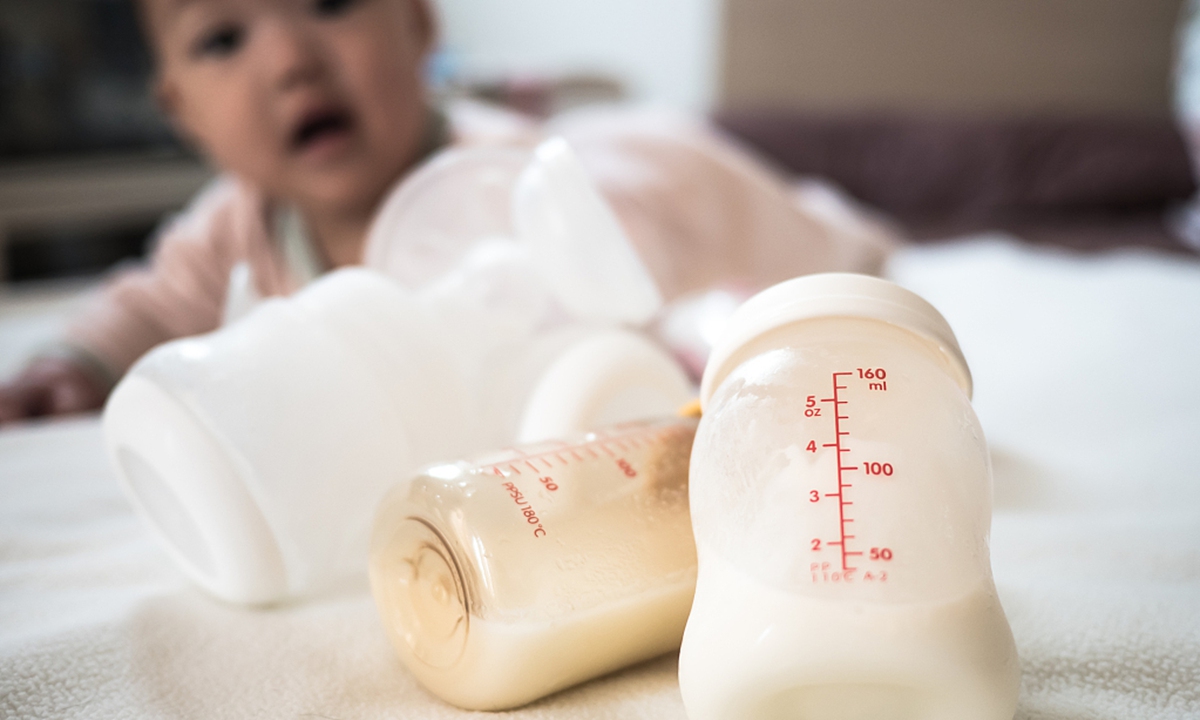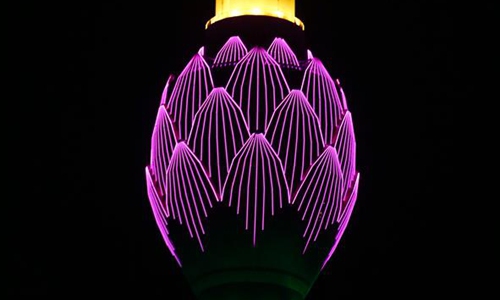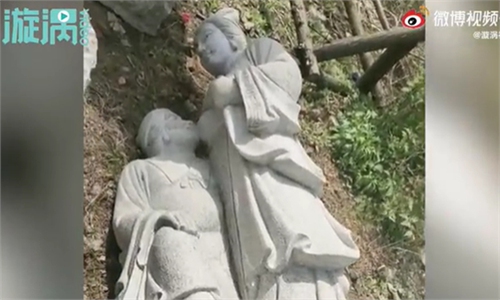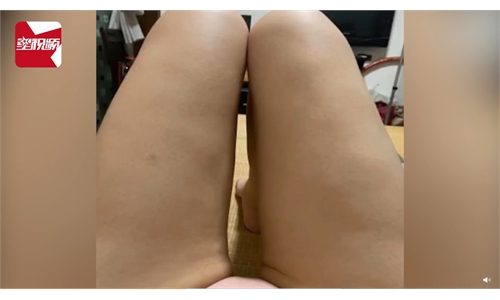
baby and milk Photo: VCG
A partly hidden black market in human breast milk on social media platforms was exposed by Chinese media on Sunday, triggering wide discussions over the legality of the chaotic market and calling for measures to regulate this industry over health, hygiene and ethical concerns.
The Global Times found that such a black market was functioning on Baidu Tieba and secondhand trading platforms Xianyu, Zhihu, or Sina Weibo, with many seeking safe and reliable breast milk for their newborns, or wet nurses. A few were even looking for breast milk for adults.
After this market was exposed by Chinese media, many accounts started to delete posts or closed. The topic of "human breast milk chaos" hit the top topics on Sina Weibo over the weekend, garnering more than 500 million views as of press time.
At a Baidu Tieba that gathered 32,000 users and had more than 120,000 posts as of press time, the Global Times found many claiming to be mothers posting from time to time that their breast milk was available for sale and many others sought safe and reliable breast milk for their babies.
The Global Times also found some claimed they could provide a test report to ensure the safety of the milk. Others sought high-priced wet nurses.
Chinese news portal thepaper.cn quoted some buyers as saying they drank breast milk themselves as they believed it provides nutrients or cures acne. Some even sought to be breast-fed themselves. The cost of this milk ranges from 500 yuan to 2,000 yuan ($77-309) per 500 grams, thepaper.cn said.
Many, in another Baidu Tieba with more than 1,000 users, claimed fresh or frozen breast milk could be shipped to buyers in various cities. Each bag of 100 milliliters costs 15 to 50 yuan, the Global Times found.
The Global Times reporter who posed as a milk buyer reached a mother with a 3-month-old child based in Xiaogan, Central China's Hubei Province through Tieba. She said she found that many mothers were selling their breast milk on social media Douyin and Tieba, and the demand was huge.
To ensure the milk would be fresh, she only did business with mothers in the same city. A bag with 130-160 milliliters of milk cost 15 yuan, she said.
To evade cyberspace management and reduce sensitivity, the Global Times found that many used abbreviations for breast milk or pinyin in their posts. In trading platform Xianyu, entering the keyword "breast milk" did not find any result, but posts selling or purchasing breast milk could be found in the comment areas of other products, such as soap or breastfeeding bags.
Cao Yanchun, a professor of law at Shanghai Maritime University, has said in a paper that human breast milk carries the attributes of human ethics, and public health and safety, but there are no substantive regulations and clear supervisory departments to manage and control human milk transactions in China.
There's only an administrative notice released by China's health authorities in 2000 that clearly banned the purchase and sale of breast milk.
As early as 2013, Chinese media had exposed the chaotic market of human breast milk, but the market only became more hidden. Many industry observers had called for regulation and a clean-up of the black market due to ethical, health and security concerns.
Some suggested to setting up more human breast milk donation organizations in China. Reports have shown that China only has 26 breast milk donation centers.
The Global Times learned from a staffer in the Maternity and Child Care Center in Qinhuangdao, Hebei Province that breast milk donations were suspended during the COVID-19 epidemic but generally, mothers who would like to donate need to register first, and go through strict tests, including blood tests and contagious disease tests.
Xu Ran contributed to the story




